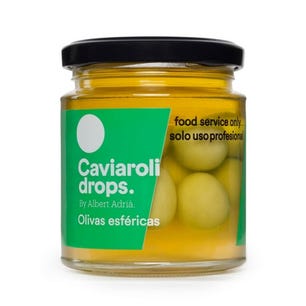Olives: From Snacks to Gourmet Ingredient
In the heart of the Mediterranean diet lies a small yet mighty fruit, the olive, revered for centuries not just for its culinary versatility but also for its profound health benefits. This humble fruit, deeply rooted in the Mediterranean basin's culture and cuisine, has transcended its regional origins to become a global staple in kitchens and dining tables worldwide. In its various forms - from the freshly picked fruit to the golden oil it yields - this fruit is an emblem of simplicity, health, and gastronomic delight.
In this Mediterranean area, where the sun bathes the land with warmth and the sea breezes impart a unique terroir, olives have found their perfect home. Here, it is not just a food; it is a testament to a lifestyle.
Olives in the Aperitivo in Italy
The Italian aperitivo, a cherished pre-dinner ritual in Italy, is incomplete without the presence of olives. This social occasion, which typically involves gathering with friends or family for a drink and light snacks before dinner, warmly embraces olives as a staple. In this relaxed setting, they are not just food; they're a part of the culture, encouraging conversation and connection.
You'll often find people eating olives, ranging from the bright green Manzanilla olives to the brown Taggiasca olives, served alongside other finger foods. Taggiasche ones, with their delicate yet rich taste, pair wonderfully with light wines and soft cheeses, while the larger, meatier Manzanilla or Gordal are great with bolder drinks and can even be stuffed with ingredients like almonds or cheese for an extra treat.
These bite-sized treats are perfect for nibbling as they effortlessly complement a variety of drinks, from crisp white wines to classic Italian cocktails like the Aperol Spritz. Their salty and tangy flavor profile stimulates the appetite, making them an ideal starter that's both simple and satisfying. In Italy, serving olives during an aperitivo is a way to welcome guests and set the stage for the meal to come, highlighting the country's love for simple yet flavorful ingredients.
Olives as a Gourmet Ingredient
Beyond their role in the appetizing aperitivo, olives have also carved out a significant niche in the world of gourmet cuisine. Their versatility and unique flavor profiles make them an exceptional ingredient in an array of sophisticated dishes. From the rustic kitchens of the Mediterranean to the polished counters of haute cuisine, olives elevate meals with a depth of flavor and a touch of elegance.
In gourmet cooking, they are not merely an add-on; they are often a pivotal ingredient that can inspire a dish. Chefs appreciate the ability of olives to impart a range of flavors – from a subtle, fruity undertone to a bold, briny punch. This makes them incredibly adaptable to various culinary creations. For instance, finely chopped Taggiasca olives can be blended into a tapenade, a rich paste that pairs wonderfully with crusty bread or as a spread on bruschetta, offering a burst of Mediterranean flavor. Similarly, the Manzanilla or Gordal varieties, known for their larger size and firmer texture, can be stuffed with almonds, garlic, or cheese, creating a delightful balance of flavors that can stand as a dish on its own or complement other elements on a plate.
One of the classic gourmet uses of olives is in sauces and dressings. A well-prepared olive-based sauce, like the traditional Puttanesca, can transform a simple pasta dish into a culinary masterpiece. The salty and tangy notes of olives, combined with capers, anchovies, and tomatoes, create a sauce that is both complex and harmonious.
Slow-cooked stews and braises often include olives for their ability to add depth and richness to the dish. For example, in a Moroccan Tajine or a French Chicken Provencal, olives not only contribute to the taste but also to the aesthetics, adding a pop of color and texture that enhances the overall dining experience.


